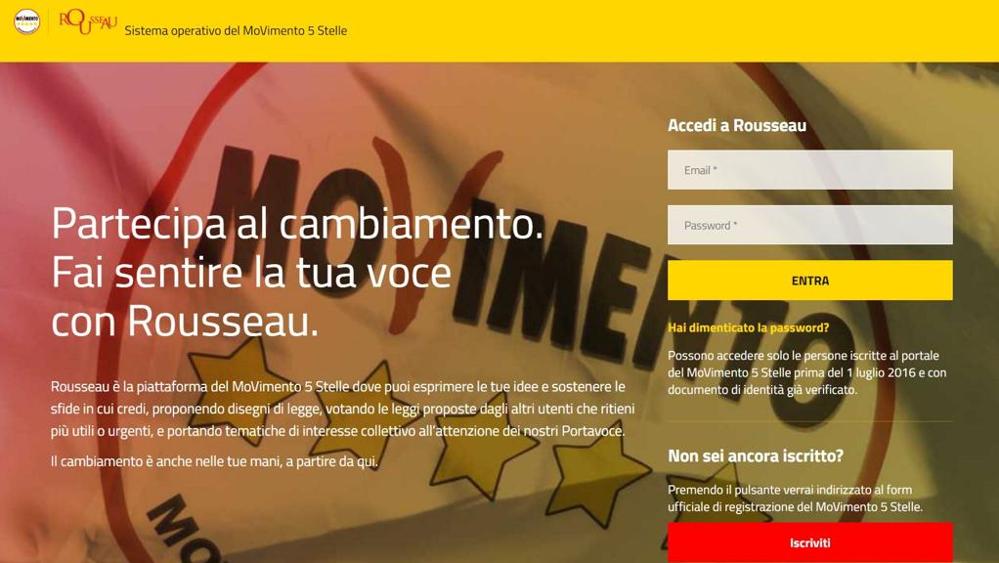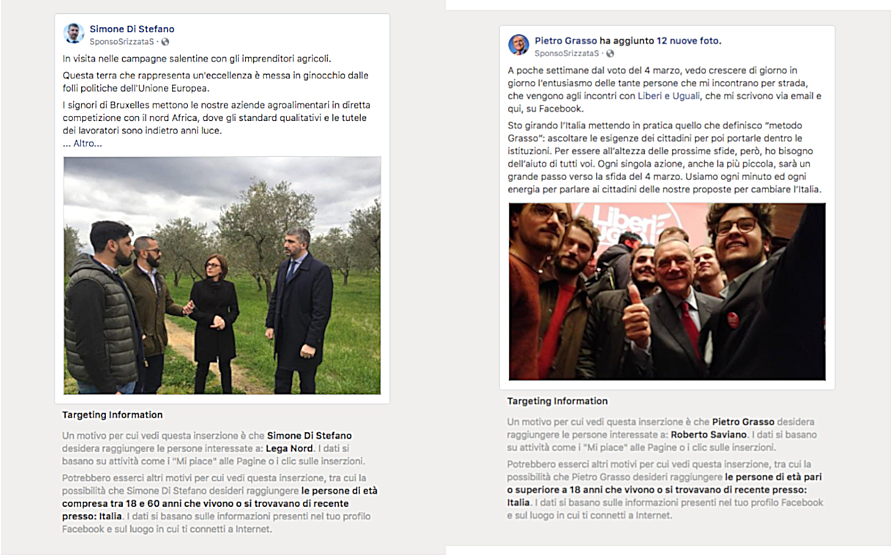| When Tactical Tech’s Data and Politics research team began to investigate how personal and individual data was being utilised in modern, digitally-enhanced political campaigns, we were quickly struck by the unbalanced coverage, particularly in the media, of the methods and strategies of data acquisition, analysis and utilisation by political campaigns across countries and different political contexts. In collaboration with international partners, we produced 14 studies to identify and examine some of the key aspects and trends in the use of data and digital strategies in recent and/or upcoming elections or referendums in Argentina, Brazil, Canada, Chile, Colombia, France, Italy, India, Kenya, Malaysia, Mexico, Spain – Catalonia, the United Kingdom and the United States. By working with journalists, digital rights advocates, lawyers, academics and data scientists, our multidisciplinary and practitioner-led approach has produced contextual overviews and tangible case studies of how personal and individual data is used by political campaigns in countries across the globe. With this collection of reports, we aim to expand our understanding of these issues beyond the contemporary, global-north focused coverage. |
|---|
On 4 March 2018 voters in Italy went to the polls to choose their members of parliament. The centre-right alliance, spearheaded by Lega, won the largest number of seats, followed by the anti-establishment 5 Star Movement (M5S) and the centre-left coalition. After several rounds of negotiations, a populist, anti-establishment coalition government was formed by Lega and M5S headed by M5S-linked Giuseppe Conte.
Tactical Tech partnered with Fabio Chiusi and Claudio Agosti to investigate the role that data played in political campaigns in the run-up to the 2018 elections in Italy. Their research is detailed in an extensive report available here. Fabio Chiusi is a freelance journalist, blogger and researcher who has covered the influence of data-driven practices on transparency and democracy in digital campaigning in Italy. Recently, he has coordinated and led the “Punto Zero” research project on digital political campaigning in Italy. Claudio Agosti is a data scientist, journalist, advocate and hacker examining algorithmic personalisation, echo chambers and the effects these have on civil society. His ongoing facebook.tracking.exposed project enables academic research and analysis on the impact of algorithms with the mission of increasing transparency behind personalised algorithms on Facebook.
Below are some of our partners’ key findings in examining data-driven electioneering in Italy. Their research focuses on data security, digital voter targeting and legal and transparency frameworks. Further issues and details can be found in the full report.
Voter and party member data is a vulnerable asset which has been the subject of hacks and breaches

The M5S makes use of the “Rousseau” system – an online participatory user platform which enables “hyperdemocracy.” It is Italy’s largest tool for digital direct democracy in which decisions about the movement’s agenda are discussed and ultimately taken on the Internet. However, the system has not proven to be flawless by any means:
Rousseau has been plagued by cybersecurity issues and has been subject to multiple hacks and breaches of user data, including a breach in 2017 affecting over 140,000 people (p. 4).
In some cases, white and black hat hackers were able to access users' full names, email addresses, social media profiles, phone numbers, professions, donation histories and payment methods, as well as other basic log-in information. Data gained from breaches of the platform eventually made it to the Internet, where it was put up for sale (p. 10).
In response to Rousseau’s demonstrated security flaws, Italy’s Data Protection Authority as well as former 5 Star Movement members criticised the platform and called into question the validity of the nomination processes for general election candidates as well as the integrity of the secret ballot (p. 10).
Beyond the issues with the system’s technical integrity of keeping voter data safe and how the platform’s administrators handled the security vulnerabilities, there remains a more fundamental question of how a non-transparent system for digital decision-making can be manipulated by those charged with maintaining it and how this affects the apparent democratic process (p. 12).
Algorithmically-powered and micro-targetable digital platforms are gaining significance in Italian political campaigning

While television boasts the highest penetration and viewership within the Italian media and information landscape, social media and search platforms are becoming more relevant in election campaigns in Italy:
More than 50% of Italians access online information via algorithmically-steered sources, like Facebook and Google, making voters susceptible to tailored and targeted campaigning information created by political entities and served by these types of platforms (p. 4).
User data’s value as an asset, as intelligence and as tool for influence by political actors has been detected across Italy’s political spectrum, including: geographical and political affiliation-based targeting and human supporters volunteering their social media accounts (and the personal data associated with them) to political campaigns to be turned into human bot-nets for political messaging (p. 7, p. 12).
An experiment by “facebook.tracking.exposed” in the run up to the 2018 election revealed how Facebook’s role in programmatically serving “relevant” political content could significantly increase the effects of political echo chambers across the political spectrum – more severely affecting those who lie at the extremes of the political spectrum (p. 15).
There is a lack of transparency and regulatory authority in digital and data-powered political campaigning
Italian electoral laws and regulations have a weak impact in enforcing oversight or transparency in digital political campaigns, which exacerbates the tensions that digital platforms and the strategic and tactical uses of data in political campaigns create:
Online political messages are not subject to any legally binding requirements demanding transparency in targeting criteria of the electorate (p. 5).
No requirements exist to lay bare the details or costs of creating databases and profiles of voters (p. 5).
Data-focused digital strategists and digital campaigning firms operate within Italian political election campaigns

The now infamous data firm Cambridge Analytica self-reported to have worked with an Italian political campaign. Separately, some 214,000 Italian Facebook users were affected by the 2018 Cambridge Analytica - Facebook Data scandal, where personal data was found to have been harvested and analysed by the digital campaigning firm (p. 7).
In 2016, then PM Matteo Renzi hired Jim Messina, digital expert and architect of the 2012 Obama data campaign, and his organisation to inform the strategy of the constitutional referendum (p. 7).
Details, however, of how political campaigns are increasingly using voter data to inform, shape and execute their strategy remain to be discovered (p. 7).
| Investigating Algorithmic Echo-Chambers in Italian Election Season The Facebook.Tracking.Exposed project conducted an experiment during the 2018 Italian election season to investigate the Facebook algorithm that powers users' news feed and the algorithm's treatment of political content. One of the experiment's goals was to observe how perception of reality is algorithmically shaped in the context of an electoral campaign. By creating six bot accounts on Facebook, which mimic the behaviour of users with different ideological orientations, the experiment found that: • The far-right orientated bot was exposed to a distinct lack of content variety compared to the other bots, while at the same time being exposed to the highest number of repeat posts and content. Furthermore, the far-right bot was consistently exposed to a disproportionate amount of visual-based content. • Centre-left content was repeated across all bot News Feeds more than any other ideological orientation and received a better exposure ratio compared to all other orientations, despite only being in third place when comparing absolute numbers of content postings. • Similar disparities in post number vs post exposure in News Feeds exist when comparing different news sources. Progressive-leaning La Repubblica’s posts surfaced more frequently in all bot News Feeds than conservative Il Giornale, despite the latter’s higher number of posts. • It is impossible to understand what accounts for these disparities without more insight into Facebook’s data. However, it can be convincingly argued that algorithmically-steered sources of information impact users' perceptions of political reality. |
|---|
For more details on the above highlights, read Fabio Chiusi's' and Claudio Agosti's full report on Personal Data and Political Influence in Italy here.
An introduction to the Influence Industry project can be found at The Influence Industry: The Global Business of Using Your Data in Elections and an introduction to the tools and techniques of the political data industry can be found at Tools of the Influence Industry.
Gary Wright is a researcher and project coordinator at Tactical Technology Collective with a history in technology & innovation in international development cooperation, as well as digital and privacy rights.
Thank you to Christy Lange, Stephanie Hankey, Amber Macintyre, and Raquel Renno for their comments and support. A thank you to Varoon Bashyakarla for his technical assistance posting this piece online.
Published June 19, 2018.
Data and Elections in Chile: Update from Datos Protegidos
Digital Election Trends in Uganda
Personal Data and the Influence Industry in Nigerian Elections
Data & Politics Virtual Round-table: Sub-Saharan Africa Event Report
The Advent of Targeted Political Communication Outside the Scope of Disinformation in Ukraine
The Netherlands: Digital Literacy and Tactics in Dutch Politics
France: Data Violations in Recent Elections
Brazilian Elections and the Public-Private Data Trade
Catalonia: Contested Data and the Catalan Independence Referendum
USA: American Digital Politics and the Commercial Sector
Chile: Voter Rolls and Geo-targeting
India: Digital Platforms, Technologies and Data in the 2014 and 2019 Elections
United Kingdom: Data and Democracy in the UK
Kenya: Data and Digital Election Campaigning
Colombia: Personal Data in the 2018 Legislative and Presidential Elections
Argentina: Digital Campaigns in the 2015 and 2017 Elections
Canada: Data Analytics in Canadian Elections
Mexico: How Data Influenced Mexico's 2018 Election
Malaysia: Voter Data in the 2018 Elections